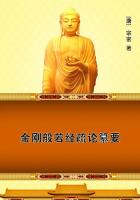King Ferdinand adopted the magnanimous measure recommended by the queen, but he accompanied it with several shrewd conditions, exacting tribute, military services, and safe passages and maintenance for Christian troops throughout the places which should adhere to Boabdil. The captive king readily submitted to these stipulations, and swore, after the manner of his faith, to observe them with exactitude. A truce was arranged for two years, during which the Castilian sovereigns engaged to maintain him on his throne and to assist him in recovering all places which he had lost during his captivity.
When Boabdil el Chico had solemnly agreed to this arrangement in the castle of Porcuna, preparations were made to receive him in Cordova in regal style. Superb steeds richly caparisoned and raiments of brocade and silk and the most costly cloths, with all other articles of sumptuous array, were furnished to him and to fifty Moorish cavaliers who had come to treat for his ransom, that he might appear in state befitting the monarch of Granada and the most distinguished vassal of the Castilian sovereigns. Money also was advanced to maintain him in suitable grandeur during his residence at the Castilian court and his return to his dominions. Finally, it was ordered by the sovereigns that when he came to Cordova all the nobles and dignitaries of the court should go forth to receive him.
A question now arose among certain of those ancient and experienced men who grow gray about a court in the profound study of forms and ceremonials, with whom a point of punctilio is as a vast political right, and who contract a sublime and awful idea of the external dignity of the throne. Certain of these court sages propounded the momentous question whether the Moorish monarch, coming to do homage as a vassal, ought not to kneel and kiss the hand of the king. This was immediately decided in the affirmative by a large number of ancient cavaliers, accustomed (says Antonio Agapida) to the lofty punctilio of our most dignified court and transcendent sovereigns. The king, therefore, was informed by those who arranged the ceremonials that when the Moorish monarch appeared in his presence he was expected to extend his royal hand to receive the kiss of homage.
"I should certainly do so," replied King Ferdinand, "were he at liberty and in his own kingdom, but I certainly shall not do so, seeing that he is a prisoner and in mine."
The courtiers loudly applauded the magnanimity of this reply, though many condemned it in secret as savoring of too much generosity toward an infidel; and the worthy Jesuit, Fray Antonio Agapida, fully concurs in their opinion.
The Moorish king entered Cordova with his little train of faithful knights and escorted by all the nobility and chivalry of the Castilian court. He was conducted with great state and ceremony to the royal palace. When he came in presence of Ferdinand he knelt and offered to kiss his hand, not merely in homage as his subject, but in gratitude for his liberty. Ferdinand declined the token of vassalage, and raised him graciously from the earth. An interpreter began, in the name of Boabdil, to laud the magnanimity of the Castilian monarch and to promise the most implicit submision.
"Enough!" said King Ferdinand, interrupting the interpreter in the midst of his harangue: "there is no need of these compliments. I trust in his integrity that he will do everything becoming a good man and a good king." With these words he received Boabdil el Chico into his royal friendship and protection.















